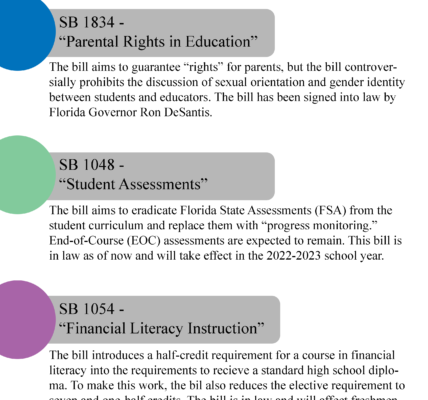By: Jonothan Milicevic
Mohammed Eliyas sat in a circle with his family. Hunched over bowls, they picked away at their meal. Before they could finish, Eliyas broke the silence; the father of two appeared to weep. Then, before a tear could leave his cheek, he collapsed. Eliyas had just taken his own life.
He never said goodbye.
On January 23, 2020, the International Court of Justice imposed provisional measures to safeguard the Rohingya from genocidal acts at the hands of the Myanmarese military. The Muslim minority group has been subjugated to internment camps along the Thai-Myanmarese border. Until its dissolution on July 1, 2025, the United States Agency for International Development (USAID) was the topmost supplier of rations and aid to the starving population, according to the Assessment Capacities Project.
USAID—described as the world’s largest bilateral aid agency by the Council on Foreign Relations—was established to end extreme global poverty and enable resilient, democratic societies to realize their potential. It operated over 12,000 projects in about 130 countries, providing health care, food assistance, and economic support to communities in crisis. Historically, the agency has operated on roughly $40 billion annually, yet sweeping curtailment is set to slash departmental obligations by more than 80 percent of its prior budget, according to Donor Tracker. Now, with humanitarian programs in jeopardy, the Rohingya and USAID beneficiaries as a whole have been pushed over the brink.
In the wake of burgeoning humanitarian crisis, AP investigative journalist Kristen Gelineau was dispatched to Myanmar to document the magnitude of the devastation. There she interviewed Mohammed Amin. Subsisting on a single bowl of leaves and rice per day, the pangs of starvation dominate all else. When his father Eliyas could no longer bear the pain, he slipped poison into his last meal.
When interviewed by Gelineau, the head of the emergency aid group Freedom House detailed a stark reality: “We are (already) in the lowest layer of hell.” Before USAID’s abolition, the U.N.’s World Food Program reported a third of all families were unable to meet the most rudimentary food requirements. Now, with a further 1 million cut off aid, 57 percent of the population is facing starvation.
The Rohingya have been forced into a stark dilemma: endure starvation—or confront suicide. Yet even as families starved, the agency responsible for keeping them alive became a target of political theater in Washington.
USAID’s funding was unilaterally rescinded during the first round of 2025 Trump administration, ‘DOGE’ cuts. Headed by Elon Musk, tech billionaire and key Trump donor, the Department of Government Efficiency set its sights on the agency. With a goal to “gut the administrative state,” the administration assured the program’s swift cancellation would not cause undue harm. Though, just as quickly as USAID fell, allegations began to surface across Washington. Watchdogs warned that cuts would unlawfully withhold congressionally appropriated funds, an action that could lead to loss of life. Dismissing the fears, U.S. Secretary of State Marco Rubio declared before congress: “no one has died,” affirming that “no children are dying on my watch.”
These claims are demonstrably false.
Even before USAID’s official closure in June, preliminary funding freezes had already led to the deaths of over 200,000 children, according to the Washington Post. A staggering loss of life, still the extent of the cuts has yet to be realized. UCLA models that more than 14 million additional deaths could occur before 2030, with 4.5 million of those being children under the age of five. Additionally, decades of progress made in the global HIV/AIDS response could be reversed overnight. USAID projects that total cessation of funding through 2030 may result in 6.6 million new infections along with 4.2 million additional AIDS-related deaths across Africa. This would amount to one of the largest resurgences of HIV/AIDS ever recorded. It is important to note that this study presumes a complete withdrawal—a reality that has yet to fully materialize.
Moreover, the cuts are not without their share of domestic injury. Beyond the loss of approximately 1,600 federal positions, as per Reuters, USAID is one of the largest buyers of U.S. agricultural products. Civil Eats reports, the roughly $2 billion worth of rice, wheat, lentils, and peas bought from USAID provides a consistent market for American farmers which helps to stabilize commodity prices.
USAID has also been instrumental to U.S. soft power. First coined by political scientist Joseph Nye, soft power is the ability of a country to influence other nations through attraction, such as culture or foreign policy, rather than coercion. Nations that once viewed the U.S. as a reliable ally now feel betrayed by the sudden repudiation of previously agreed obligations. The goodwill built over decades has been jeopardized, potentially ceding ground to U.S. adversaries eager to fill the vacuum.
While U.S. foreign aid only comprises less than 1% of the federal budget, with USAID equaling .3% as per USAFacts, the lion’s share of U.S. adults are not aware of this reality. According to Statista, only 11% of survey respondents correctly estimated that 1% or less of the federal budget is spent on aid. Shockingly, respondents wildly overestimated U.S. foreign aid expenditure: on average, they thought it comprised 26% of the entire federal budget, while 15% believed that more than half of all federal spending was spent on aid.
This misperception of aid—magnified by populist rhetoric—serves as a tool to justify drastic policy shifts. Politicians exploit public ignorance to advance an agenda that scores political capital, regardless of the real-world cost. Even as the agency represented a tiny fraction of the federal budget, its absence produces outsized effects—millions of lives lost, a relapse in global health security, and reputational damage that may take generations to repair.
The USAID case illustrates a broader tension in U.S. policy: the gap between perception and reality. Across the political spectrum, leaders have weaponized fears of an overextended government and other misconceptions to legitimize policies that, in practice, contradict ethical and empirical imperatives.
What began as supposed fiscal expediency has materialized as a profound moral reckoning. The story of Mohammed Eliyas and USAID is a microcosm of a larger phenomenon—not merely the leveraging of information politics, but a fundamental re-evaluation of altruism’s utility in governance. When compassion becomes negotiable, the measure of a nation lies not in what it creates, but in what it has left for dead.
Pictured: Rohingya refugees wait in a camp in Cox’s Bazar, Bangladesh, Wednesday, Feb. 14, 2018. (VOA / Zlatica Hoke)





